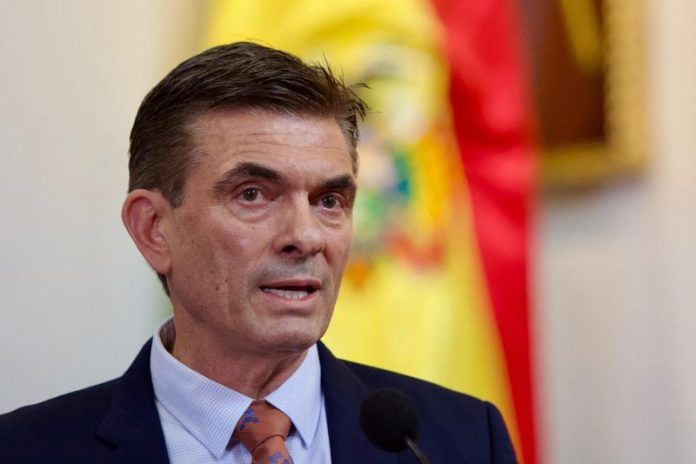LA PAZ (Reuters) -Bolivia’s President-elect Rodrigo Paz will be sworn in on Saturday, inheriting an economy in turmoil and facing tricky negotiations in the legislature to pass reforms economists say are needed to stabilize the country’s finances.
Paz, a centrist former senator from the Christian Democratic Party, won the October 19 runoff election. His victory marked a historic shift for Bolivia after nearly two decades of leftist rule under the Movement to Socialism (MAS).
Although Paz’s party is the biggest in the Legislative Assembly, it does not have a majority in either house, so he will need to build alliances. But the new legislature, to be in place until 2030, is dominated by pro-business and right-leaning parties, potentially easing the path for market-friendly policies, analysts said.
Argentina’s libertarian President Javier Milei and Chile’s leftist President Gabriel Boric will be among attendees at the November 8 inauguration in La Paz.
Paz’s immediate challenge is securing external financing and implementing policies that may be unpopular, including cutting energy subsidies and moving towards a more flexible exchange rate system.
“When Paz steps in, he won’t have any liquid reserves in the central bank to import fuel,” said economist Juan Sola at BancTrust & Co. “But multilateral lenders are keen to support Bolivia in this new process.”
Bolivia, a landlocked producer of natural gas and grains, is enduring its worst economic crisis in decades. Nationalization of strategic industries has deterred foreign investment, affecting output.
Annual inflation has surged above 20%, while dwindling foreign currency reserves – eroded by stalled energy production and exports – have triggered acute shortages of fuel and U.S. dollars.
“In medical terms, the economy is on the verge of death,” said Gabriel Espinoza, an economic adviser to the incoming government.
Paz has said one of his first priorities will be to reduce diesel subsidies for agriculture and other business sectors. Gasoline subsidies for public transport will be phased out more gradually in a bid to cushion the impact on ordinary citizens, Paz has said.
Last month, Paz traveled to Washington to meet with multilateral creditors.
Both the International Monetary Fund and the Inter-American Development Bank have expressed readiness to support the new administration. All loans must be approved by Bolivia’s Legislative Assembly.
Paz, who has pledged to maintain social programs while promoting private sector-led growth, initially resisted seeking IMF support. But one source close to the administration said Paz’s economic team had already presented its program to the Fund in the hopes that it could open fresh credit lines.
Paz’s ability to secure public support for his measures will be key to political stability, Sola said
“This way, the government avoids being perceived as merely complying with IMF demands,” Sola said.
EMERGING ALLIANCES
Navigating Bolivia’s fragmented legislature is among Paz’s most pressing challenges.
To strengthen his position, Paz has brought in figures from the pro-business Unity Alliance, which secured roughly 20% of seats in the lower house. Jointly, it and Paz’s Christian Democratic Party (PDC) now command a working majority in both houses.
Unity Alliance spokesperson Marco Fuentes told Reuters that the bloc would support “any initiative that benefits the country,” while also pushing its own priorities.
Elena Pachacute, a senator from the conservative Free Alliance, said in an interview that Paz had embraced an economic rescue plan similar to her coalition’s.
However, questions remain over the loyalty of some lawmakers affiliated with Paz, particularly those with past ties to MAS and its founder, former President Evo Morales.
“Paz has links with MAS,” said Sola. “(But) we don’t know if they (MAS-affiliated lawmakers) will end up supporting him.”
(Reporting by Lucinda Elliott in Montevideo and Daniel Ramos in La Paz. Editing by Christian Plumb and Rosalba O’Brien)
Disclaimer: This report is auto generated from the Reuters news service. ThePrint holds no responsibility for its content.






